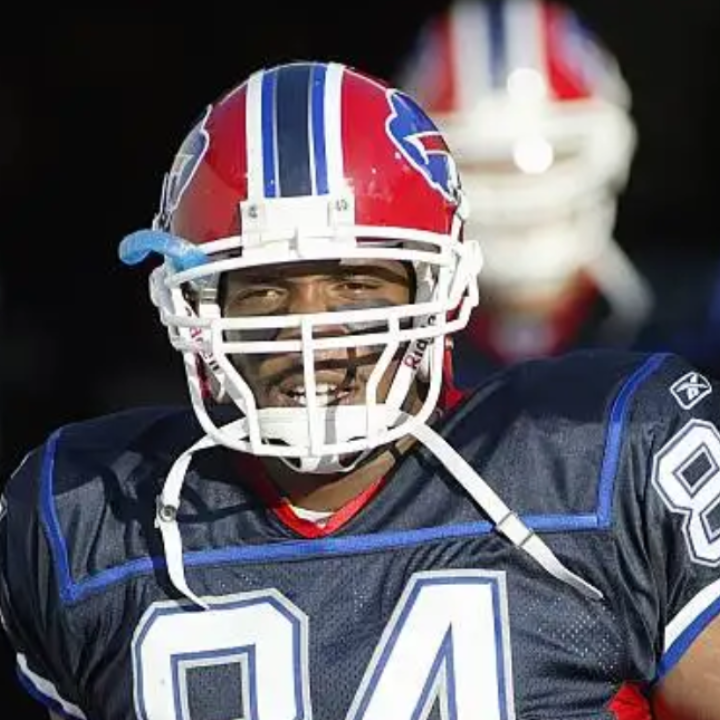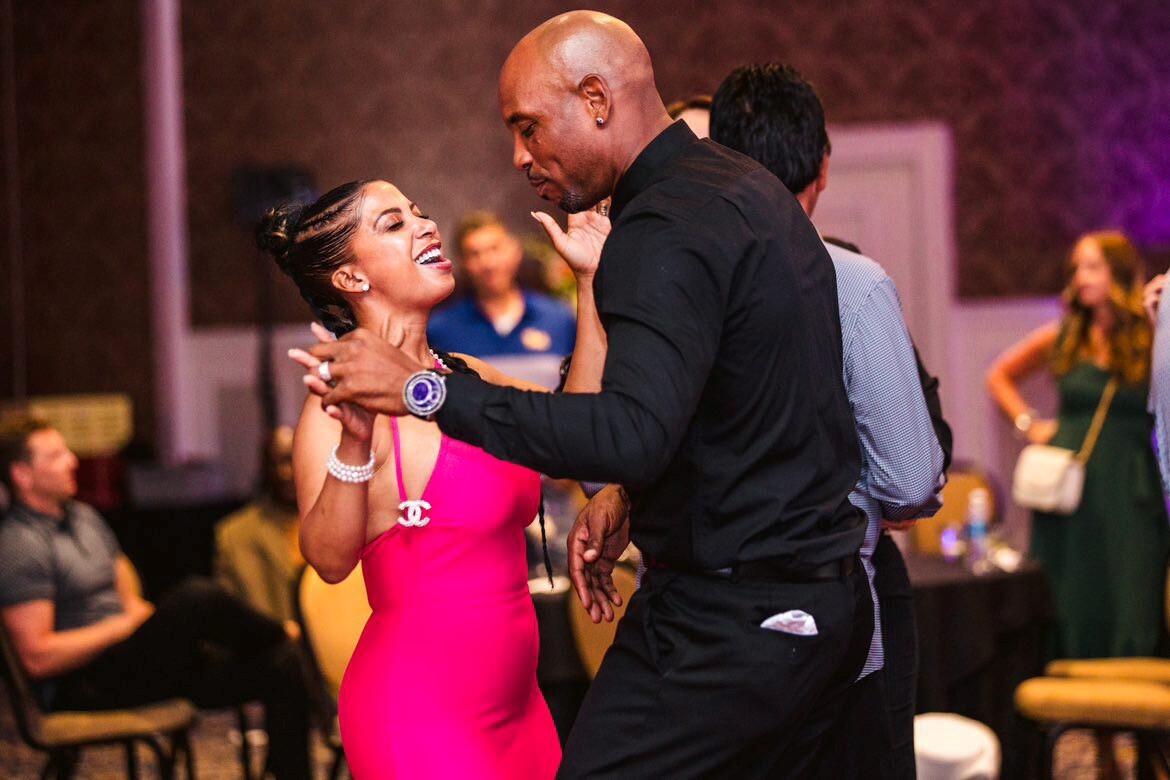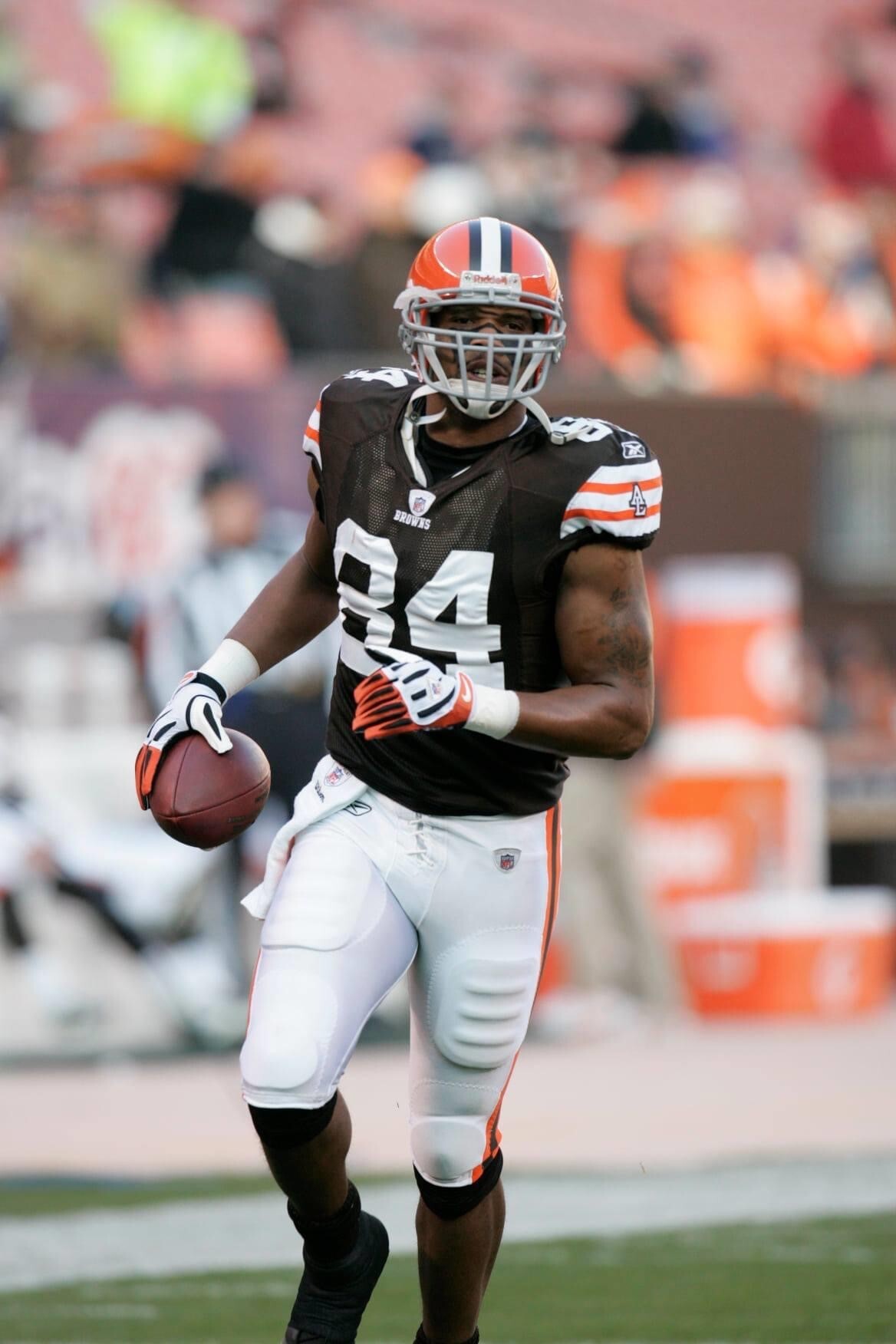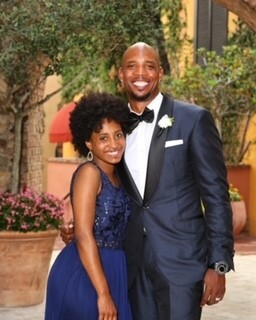
Catching Up With Former Player Rep: Robert Royal
We caught up with former NFLPA Player Rep, Robert Royal. We discussed his giving mindset, what skills he learned when he was a Player Rep, and what he is up to after retiring from the game.

What inspired you to become a Player Rep when you were playing?
Coming in as a rookie, there always ends up being a veteran that you can lean on and talk to during that time. Takeo Spikes, our Player Reps, and Troy Vincent would talk to me about the importance of learning this information. Whether it was a benefit or making sure I put my money into my 401K. Probably in my fourth or fifth year in the league, I was keener and more tuned into those benefits and stuff like that, so I thought it was prevalent for me to move into that leadership role. It was really important for me to start running for that Player Rep position once I got to Buffalo and Cleveland.
What are some of the lessons/experiences that you were able to take away from being a Player Rep?
I guess the biggest thing is having access to being able to speak to your guys. I know a lot of times most guys, once they are out of the game, tend to drift away from it. But being a Player Rep allowed me to have a lot of communication with a number of my guys. So, once I was able to finish playing in the NFL, I still had that communication with those guys because I had been communicating with them throughout the years. The other part is just being able to be there. That's one of the number one factors I think, being a Player Rep and being there for your guys always.
Why should more players look to get involved/be active within the NFLPA?
I think you have to understand the benefits and everything that you're earning. I think it is something that we truly earned and I think a lot of guys have to realize that this is something that was/is not given to everyone. I think making sure that you're truly understanding and trying to take advantage of the things that are there for you is important. I believe being a Player Rep allows you to seek that knowledge, seek to be in those meetings, seek to understand what those benefits are, what those pillars look like, and what the Trust is. Just understanding things that are much deeper than the surface. Then most importantly, I think your guys just respect the fact that you're still trying to reach out to them and share that information with them, which some guys and a lot of guys may not know.

What is a piece of advice that you have for players transitioning out of football?
The number one thing I think is important to consider is: what are the things you plan on doing once football is not around? You need to start doing those things, whether that's in the offseason, or even as a current player during your season. In the offseason, start seeking internships or start seeking knowledge about the particular field that you're looking to get involved in once you've finished your time in the game. I think doing that still gives you a way to compartmentalize things that are outside of the game, but you can also start working in those particular fields and start getting your interest going. When you are inside the game, you’re always about football, but when the offseason comes, just throw your hat into the ring whether you want to be a coach or whatever you aspire to do next.
What are you doing in your career now?
In college, I graduated with a degree in Kinesiology. So going through the NFL, the study of human movement, it helped me out to really kind of be on a homeopathic path in terms of not taking a whole bunch of anti-inflammatories and stuff like that. Then from that, I just kind of transitioned into some real estate, private equity, and money management things. Whether it’s liability protection, taxation, or money management, I'm not an expert in those things, but I was able to learn and network with some great people and they’ve put me in a position now to take advantage of. Whether that's some of our relationships that I've had that I've mended or whether that's getting involved in private equity. I have since come back to my hometown of New Orleans where we have focused on tackling childhood obesity for the last 14 years. We kind of transitioned into affordable housing through RAM (Registered in Apartment Management) and I am glad to be back in my community. My wife and I are looking to transition into my old neighborhood and do some great things as well.

How have you applied the lessons you learned playing football to your post-playing career?
Once I got to college with Gerry DiNardo and then really with Nick Saban, I was thrown into a leadership role. From there, I started realizing certain leadership skills that I had and I think Nick Saban started to shape that a little bit at LSU. Then by getting into the NFL and being around my guys, I realized that it is important to be taking some of those networking opportunities from being around a lot of different people. Throughout my time in the league, this has allowed me just to kind of understand the path of relationships and where that can get you and it still plays a role in life today. I try to really make sure that I don't burn bridges in my relationships and with the people that I meet. A lot of the time they can put you in a lot of better positions than you can put yourself in. It's a matter of you just being ready for those opportunities when they come. Whether that's going through some of the Wharton Business School programs, the Harvard Business School programs, Kellogg, or whatever it may be that the NFL may offer, I think it's really important to start trying to dive into those things. That way, when you have these different relationships and people that you meet, you can always call and reach out to them to possibly allow you to get your perspective filled. I think that's one of the main things that guys have to do. It's really important to understand the magnitude of the network and relationships that we have while playing in the league.
Tell us a little about the foundation that you run in your community.
For the past 14 years, the goal of the Robert Royal Foundation has been to tackle childhood obesity. Lately, we have branched out and we've also been focusing on affordable housing pieces. We do everything from non-contact football, cheer, pilates, Zumba classes, hurricane evacuation, vendor, and money management courses, so it's grown from your traditional football and cheer camp to an all-around wellness camp. The goal here recently is to start having some first-time home buyer programs and stuff like that put in place so we can start having seminars on that type of stuff. We kind of transitioned from child obesity to an overall health perspective or whatever area we see whether it's a family in need or someone we’ll try to help as needed.